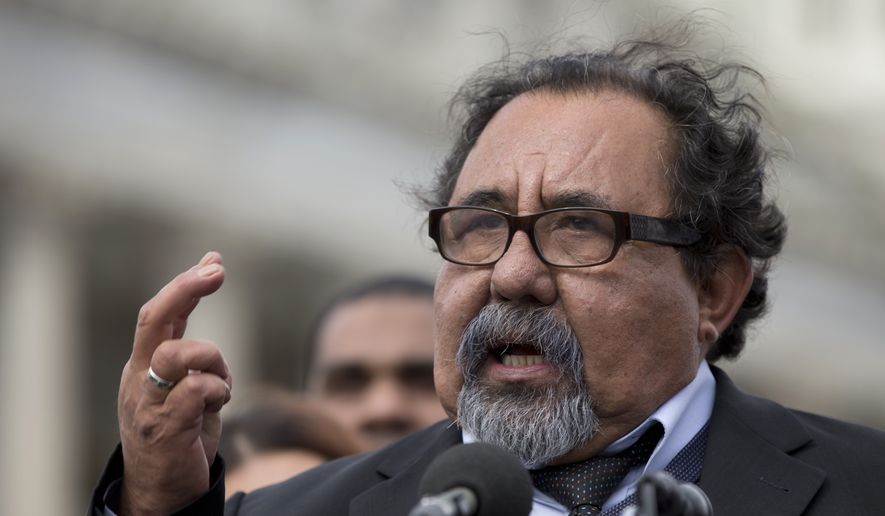University of Delaware officials have refused to provide information on the funding of a climate professor to House Democrats, stating that to do so would violate the university’s policies on academic freedom.
In a response dated Monday and later released to reporters, officials at the University of Delaware provided Rep. Raul M. Grijalva, Arizona Democrat, with general information about the institution’s funding policies. But they refused to turn over details related to the financial backing of professor David Legates.
“The University of Delaware chooses not to act in a manner inconsistent with its governing principles and contractual commitments,” said the letter signed by UD president Patrick T. Harker and provost Domenico Grasso.
Mr. Grijalva, the ranking Democrat on the House Committee on Natural Resources, launched an investigation last month into the internal and external funding of seven professors who have disputed the climate change movement’s contention that global warming is resulting in extreme weather events.
The Grijalva letters ask five questions, the first on university policies on financial disclosure and the other four on the funding of specific professors by name. University of Delaware officials provided information in response to the first question but not the others.
“The remaining four questions in your letter relate to research conducted by Professor Legates, who is mentioned by name in each question,” said the letter from the Delaware president and provost. “The University respectfully declines to respond to those questions, which we believe intrude into areas that are protected by academic freedom.”
SEE ALSO: Climate change ‘denier’ scientist funding investigation countered by ‘warmist’ probe
Mr. Grijalva had originally asked for the seven universities to provide information by Monday, but he may have since granted them an extension. University of Colorado Boulder spokesman Ryan Huff said the congressman had given CU officials an additional week to provide information on professor Roger Pielke Jr.
Mr. Grijalva told the universities he was concerned about whether the professors, who have testified before Congress, were being funded by the fossil fuel industry. The congressman has since received enormous pushback from academics, scientists and others who say his investigation amounts to a “witch hunt,” in the words of Mr. Pielke.
Mr. Legates, the former Delaware state climatologist, is a geography professor and former director of the university’s Center for Climatic Research. He has come under fire from the climate change movement for disputing its contention that rising levels of carbon dioxide in the atmosphere will lead to catastrophic temperature increases.
Mr. Legates was also the co-author of a 2015 paper, along with other so-called climate “skeptics” like Harvard-Smithsonian Center for Astrophysics researcher Willie Soon, that predicts only a 1 degree temperature rise from 2000 to 2100 and challenges the more drastic predictions of the United Nations’ Intergovernmental Panel on Climate Change.
Officials at Arizona State University provided the bulk of the information requested by Mr. Grijalva in a March 12 response on professor Robert Balling, minus copies of his congressional testimony, noting that ASU does not require faculty to submit such documents.
Arizona State University president Michael M. Crow included an additional document in a March 6 letter: a copy of the ASU policy on academic freedom.
“I strongly urge you and your colleagues to be aware of and to consider the principle of academic freedom as you continue your pursuit of documents and information from universities and individual faculty members,” Mr. Crow said.
A geography professor at ASU, Mr. Balling is also the former director of the university’s Office of Climatology. He has described global warming as real but “relatively modest,” and far less catastrophic than widely depicted.
• Valerie Richardson can be reached at vrichardson@washingtontimes.com.




Please read our comment policy before commenting.